David Hoeller
Joint Space Control via Deep Reinforcement Learning
Nov 12, 2020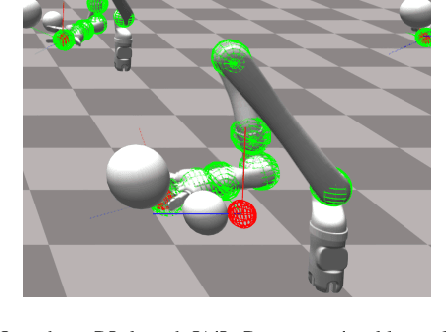
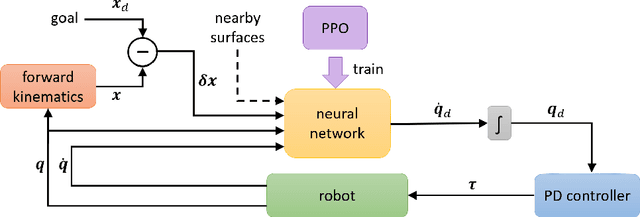
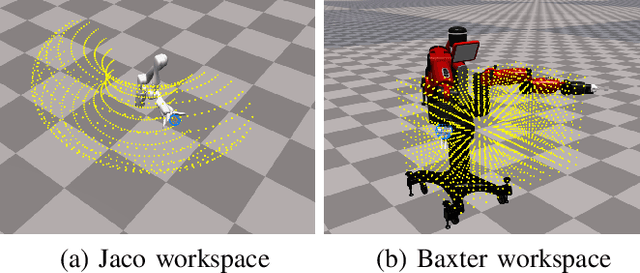
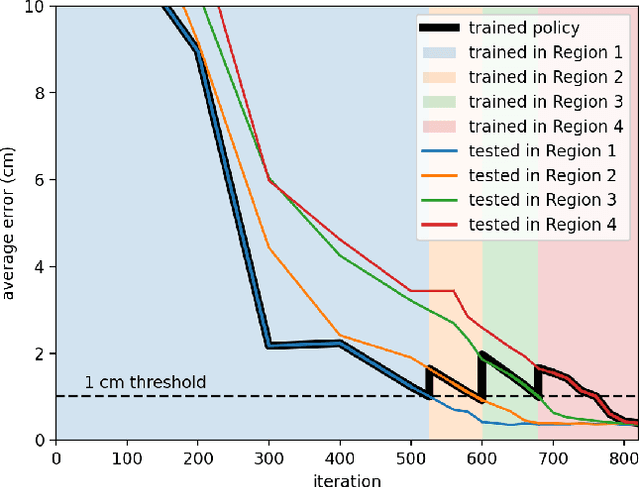
Abstract:The dominant way to control a robot manipulator uses hand-crafted differential equations leveraging some form of inverse kinematics / dynamics. We propose a simple, versatile joint-level controller that dispenses with differential equations entirely. A deep neural network, trained via model-free reinforcement learning, is used to map from task space to joint space. Experiments show the method capable of achieving similar error to traditional methods, while greatly simplifying the process by automatically handling redundancy, joint limits, and acceleration / deceleration profiles. The basic technique is extended to avoid obstacles by augmenting the input to the network with information about the nearest obstacles. Results are shown both in simulation and on a real robot via sim-to-real transfer of the learned policy. We show that it is possible to achieve sub-centimeter accuracy, both in simulation and the real world, with a moderate amount of training.
Learning a Contact-Adaptive Controller for Robust, Efficient Legged Locomotion
Oct 05, 2020
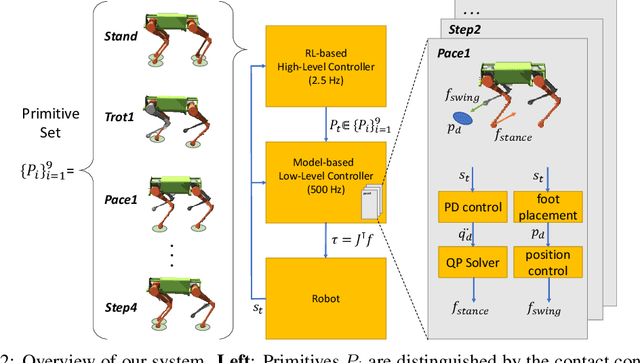

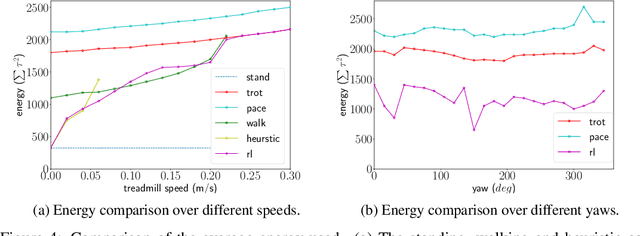
Abstract:We present a hierarchical framework that combines model-based control and reinforcement learning (RL) to synthesize robust controllers for a quadruped (the Unitree Laikago). The system consists of a high-level controller that learns to choose from a set of primitives in response to changes in the environment and a low-level controller that utilizes an established control method to robustly execute the primitives. Our framework learns a controller that can adapt to challenging environmental changes on the fly, including novel scenarios not seen during training. The learned controller is up to 85~percent more energy efficient and is more robust compared to baseline methods. We also deploy the controller on a physical robot without any randomization or adaptation scheme.
Practical Reinforcement Learning For MPC: Learning from sparse objectives in under an hour on a real robot
Mar 06, 2020



Abstract:Model Predictive Control (MPC) is a powerful control technique that handles constraints, takes the system's dynamics into account, and optimizes for a given cost function. In practice, however, it often requires an expert to craft and tune this cost function and find trade-offs between different state penalties to satisfy simple high level objectives. In this paper, we use Reinforcement Learning and in particular value learning to approximate the value function given only high level objectives, which can be sparse and binary. Building upon previous works, we present improvements that allowed us to successfully deploy the method on a real world unmanned ground vehicle. Our experiments show that our method can learn the cost function from scratch and without human intervention, while reaching a performance level similar to that of an expert-tuned MPC. We perform a quantitative comparison of these methods with standard MPC approaches both in simulation and on the real robot.
Deep Value Model Predictive Control
Oct 08, 2019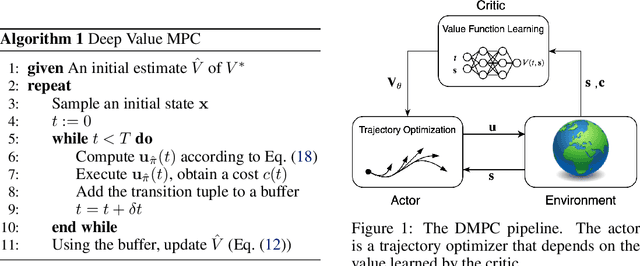
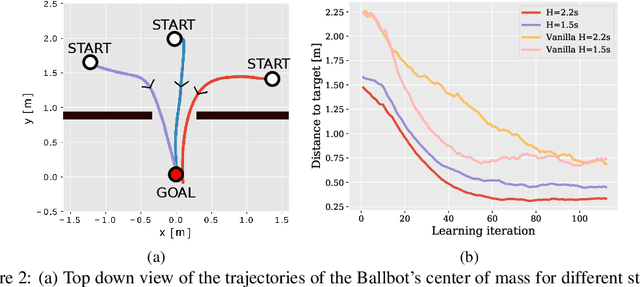

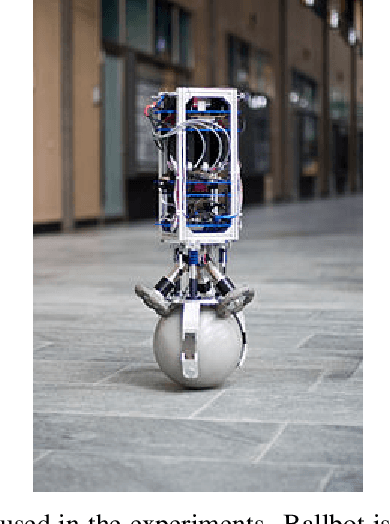
Abstract:In this paper, we introduce an actor-critic algorithm called Deep Value Model Predictive Control (DMPC), which combines model-based trajectory optimization with value function estimation. The DMPC actor is a Model Predictive Control (MPC) optimizer with an objective function defined in terms of a value function estimated by the critic. We show that our MPC actor is an importance sampler, which minimizes an upper bound of the cross-entropy to the state distribution of the optimal sampling policy. In our experiments with a Ballbot system, we show that our algorithm can work with sparse and binary reward signals to efficiently solve obstacle avoidance and target reaching tasks. Compared to previous work, we show that including the value function in the running cost of the trajectory optimizer speeds up the convergence. We also discuss the necessary strategies to robustify the algorithm in practice.
 Add to Chrome
Add to Chrome Add to Firefox
Add to Firefox Add to Edge
Add to Edge